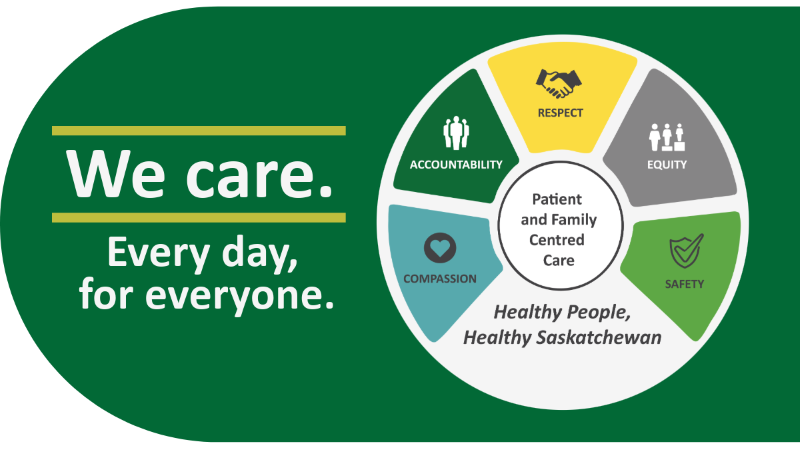Listen to Survivors: Lessons for health-care workers
Survivors of residential schools carry powerful stories. These stories can be hard to hear, but they are gifts. They help us understand the truth of what happened and how it still affects people today.
For The Saskatchewan Health Authority (SHA), listening to survivors is an important part of our commitment to reconciliation and our CARES values (compassion, accountability, respect, equity and safety).
Survivors can teach us about strength, resilience, and the ways colonial policies and systems have and continue to harm Indigenous peoples. This knowledge helps us to learn so we can deliver care that is culturally responsive, compassionate and respectful.
In Saskatchewan, residential school survivors often share their stories in schools, community halls, and public events. When health-care workers attend these events, it shows we are willing to learn directly from the people who lived through these experiences. Listening to survivors also means reflecting on our own role in making health care safe. It is about asking, “How can I enhance my practice so Indigenous patients feel seen, heard, and respected?”
Orange Shirt Day is one opportunity to hear these stories, but the learning should continue all year. SHA staff can connect with and First Nations and Métis Health at truthandreconciliation@saskhealthauthority.ca to find out about training and community events where survivor voices are shared. By listening and learning, we can help ensure that history does not repeat itself. We can be part of creating a health system where Indigenous people feel welcome and valued.
On September 30 – and every day – let’s honour the courage of survivors by turning stories into action.



